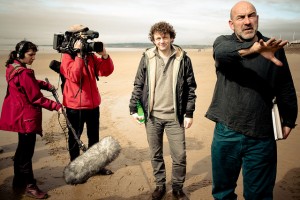I couple of weeks ago I was invited to give a presentation to a group of Social Entrepreneurs at a great conference organised by the Wales Co-Operative Centre and the Welsh Social Enterprise Coalition in Swansea. Wales has a long tradition of Social Enterprise going back to the 19th Century, from Robert Owen to Aneurin Bevan.
The presentation was livestreamed, and the video is available online here. If you’re interested, the software I used for the slideshow is Prezi.

The benefit of online collaboration (Guardian)
Here’s an interesting albeit teasingly brief set of examples of how arts and culture organisations used online collaboration tools and practices to be more efficient and save money.
Collaboration has been a good use of digital media for a number of years. But I suppose it’s inevitable that ‘feeling the squeeze’ is given as a key reason for looking at these collaboration opportunities, perhaps enough to bring what might have been perceived as a niche topic into the pages of the Guardian.
The emphasis in the article is mainly on collaboration beyond the walls of your company – with other organisations – although I’d argue that better collaboration can bring benefits within the team of an organisation too.